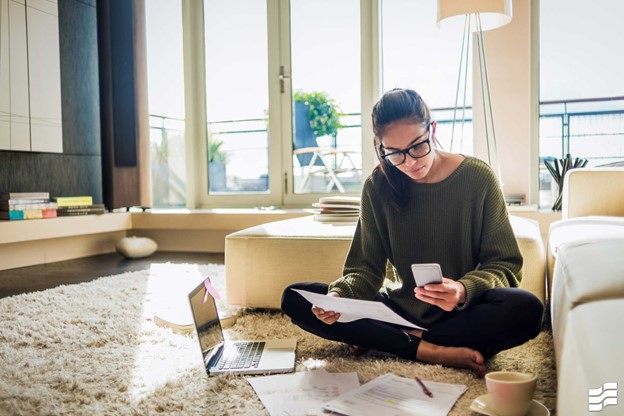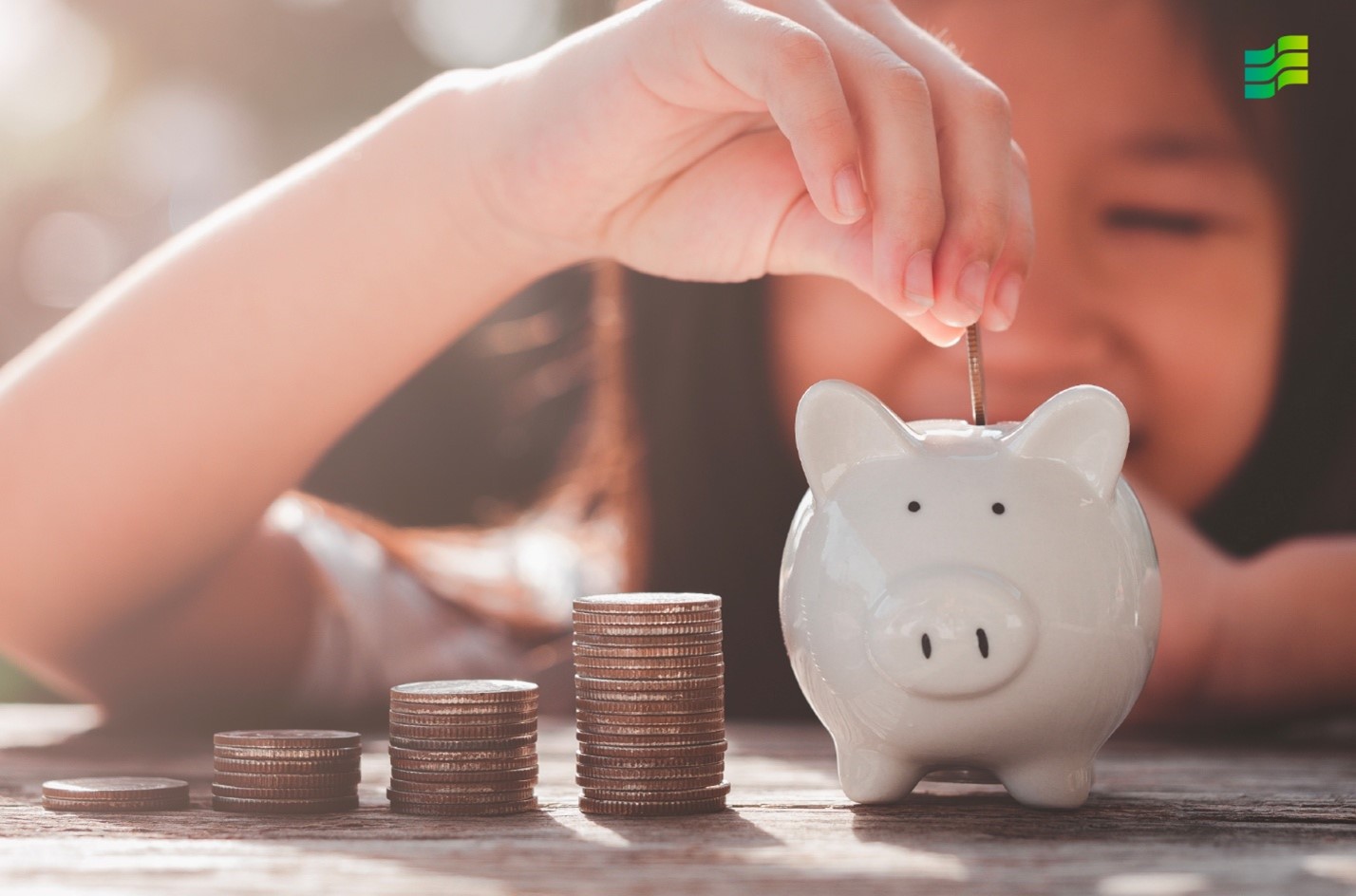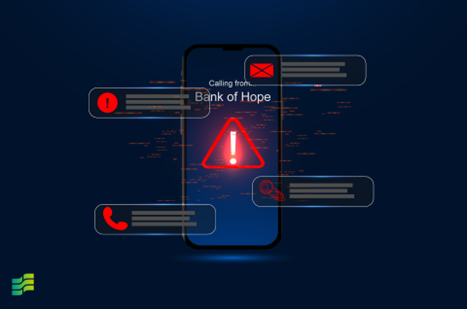FVP & Retail Strategy Manager
How often should you check your bank account? If you use your checking account for the bulk of transactions, you should monitor it often enough. Alternatively, if you use credit cards for the majority of day-to-day interactions, you may be able to get away with checking your bank account monthly (though we recommend as often as possible).
While logging into your account takes mere seconds, monitoring your bank account means more than merely checking the total balance. But it’s worth it—a little upfront diligence can help you spot and address issues and make marked improvements toward financial milestones.
In this article, we’ll explain what checking account elements you should keep an eye on, as well as factors that may impact the frequency with which you should monitor your bank account.

Why Monitor Your Checking Account in the First Place
In order to understand how often you should check your bank statement, it’s first important to explain why. While some reasons may be obvious (such as to avoid overdraft fees), others may be less so. It’s important to regularly monitor your checking account to:
- Flag any outdated recurring charges. Perhaps you have two different music streaming subscriptions (rather than the necessary one). Perhaps you assumed your gym membership cancellation went through but, in fact, it did not. Frequently checking your bank account makes it easier to spot those ongoing subscriptions you have forgotten about, enabling you to cancel them rather than let the monthly charges continue.
- Flag any suspicious charges or withdrawals soon after they happen. Regularly monitoring your bank account not only enables you to act swiftly if there are transactions you don’t recognize but also makes it easier to spot them in the first place. After all, if you only monitor your checking account once every blue moon, fraudulent charges will be buried among your other transactions. And will you be absolutely certain that you didn’t make that purchase from Wal-Mart three months prior? Probably not.
- Ensure you have enough money to cover living expenses and have an emergency fund left over. Your checking account won’t remain consistent. Instead, it will ebb and flow as you receive income and spend money. Therefore, regular monitoring throughout the month of your bank account can give you confidence that you have what you need (with a cushion).
If you only check once a month, be strategic about when you check your bank account. For instance, if you make a habit of reviewing your account on the 1st of each month, it wouldn’t factor in that rent check your landlord cashes a few days later. Therefore, we suggest aiming for the middle of the month when rent or mortgage payments are cleared. Ideally, you should also check your bank account before paying credit card and utility bills to ensure you have the necessary amount.
- Assess your budget and regular spending habits in relation to financial objectives. Let’s say your goal is to grow your savings or get a new mortgage. Checking your bank account’s balance is a great way to grade yourself on whether the amount you earn outpaces your spending (or vice versa). If you find that your checking balance isn’t increasing quite as you hoped, you can review your individual transactions to see which unnecessary expenses may be hurting you the most (like dining out or unnecessary energy usage that drives up the electric bill).
- If you find yourself with “extra” in your checking account, you can put that money into accounts with greater growth potential. Checking accounts are best for covering more immediate expenses rather than long-term Return on Investment (ROI). If you find yourself with enough to cover both regular spending and emergency needs, you may want to shift some of your money into certificates of deposit (CDs) or money market accounts. Of course, you may not know you have this “extra” money unless you monitor your checking account.
What to Evaluate When Checking Your Bank Account
What to Assess Every Time You Check Your Bank Account
- The total value of your bank account
- How that balance compares to built-up credit card charges and upcoming expenses
- Recent charges
What to Assess Monthly
- How your monthly amount compares to previous months
- That the contact information is up-to-date
- Whether your chosen checking account’s specific perks align with how you use the account
Additional Tips for Healthy Bank Account Management
Regularly monitoring your checking account is one of many steps you can take toward better financial health and proactive money management. Additional actions include:
- Explore various checking account options to find the best one for your specific needs - Bank of Hope offers multiple types of checking accounts, each with its own pros. For example, our Regular Checking option has an incredibly low minimum ($100), unlimited check writing, the option to sync up with Zelle, and more. Another option, our Reserve Checking, doesn’t necessarily integrate with Zelle or grant checks, but it offers greater interest opportunities. Our point? As your spending habits and financial goals shift, so will your needs from a checking account. Knowing all the options at your disposal will help you make informed decisions about which account to select.
- Look for a bank that offers surcharge-free transactions at ATMs near you. ATM fees add up over time. Therefore, open up a checking account with a bank that lets you access your money for free using ATMs in areas you frequent. For example, Bank of Hope offers free banking through all of our ATMs, as well as all Allpoint and MoneyPass machines.
Keep in mind that ATM fees are even worse when withdrawing cash internationally. Avoid unnecessary fees by using a foreign currency exchange prior to your travels.
- Learn to anticipate seasonal-based expenses and ensure your checking account is ready. Unforeseen expenses arise all the time, whether it is a major car repair or a trip to the hospital. However, there are also plenty of months in which you will naturally spend more than in others. For example, hotter months may have you traveling and eating out more than colder months, as well as paying higher energy bills than you did in the spring. If you identify such seasonal patterns in your spending, you can anticipate needing to have more money easily accessible in a checking account during such times. During "slower" periods, you may need to have less (though you will still need an emergency fund), enabling you to put more away into long-term investments.
Ready to Open a Checking Account With Bank of Hope?
Bank of Hope has served customers across both coasts for more than 40 years, offering customers the stability of FDIC-insured checking accounts and an extensive network of locations and ATMs, so we’re never far from home.
Despite our large size, we still adopt a community-focused mindset when serving customers. Whether you want to open a checking account for your personal spending or business operations, we’re here to answer all questions and provide guidance when requested.
LEARN MORE ABOUT PERSONAL CHECKING ACCOUNTS FROM BANK OF HOPE

 Gemma Kim
Jul 27, 2023
Gemma Kim
Jul 27, 2023



